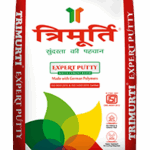
Notified as a must by the SEBI, Securities and Exchange Board of India, a Demat account is a digital account for investors. Investors need to have a demat account to hold all their securities in an electronic form in one place. This eliminates the dependency on physical certificates and papers and further eliminates the hassle of their storage and management. A DP or depository participant helps you manage your dematerialized account.
Having a demat account can help you in several ways. For example, it is convenient, easily accessible, facilitates easy storage, is secure, and much more. Reading all about the demat account basics and its benefits has left you curious to know more. Worry not and read on as we help you understand different types of Demat accounts, and their meaning and help you choose one that suits you best.
Types of Demat Accounts in India
Having a demat account opening online can serve several benefits. However, before you enjoy the perks, let’s understand the common types of demat accounts in India.
-
Regular Demat Account
Regular standard accounts used by Indian residents. Investors use these accounts to hold securities like mutual funds and equities, using the assistance of middlemen like DP, stockbrokers, etc. These regular Demat accounts have a standard fee which varies from one service provider to another. Factors like the type of the account, maintained amount, and more are taken into consideration to determine the account charges. Its easy accessibility is also one of its main features.
-
Basic Services Demat Account
Basic Services Demat Accounts or BSDA are newly introduced by SEBI to make finance inclusive for everyone. It is very similar to the regular Demat account, except the maintenance charges are lower in BSDAs to encourage small investors. For instance, according to the new rules by SEBI, there is no AMC for holdings valuing around ₹4 lakhs. Further, for holdings exceeding ₹4 lakhs and up to ₹10 lakhs, an annual maintenance charge of just ₹100 will be charged.
-
Repatriable Demat Account
For NRIs, looking to invest or trade in securities in India, a repatriable Demat account stands to be a good choice. This account allows you to easily transfer funds abroad whenever needed. However, it is important to have an NRE or Non-Resident External bank account. Using this account, you may trade in India and repatriate your funds back to your residence country.
-
Non-Repatriable Demat Account
For NRIs, who do not want fund repatriation but are looking for investment opportunities in India, a non-repatriable demat account can be of good use. These accounts are suitable for local trading and investments and are managed under the regulatory guidelines of FEMA. Also, it is important to link your non-repatriable demat accounts with Non-Resident Ordinary or NRO bank accounts.
Essential Documents to Open a Demat Account
Now that you’ve read the several types of demat accounts, let’s explore the documents needed to open one.
- Identity proof
- Proof of residence
- Income proof
- A copy of your PAN
- Proof of your bank account
Having these documents in handy can help you easily open your account without much hassle.
Choosing the Right Type of Demat Account
When it comes to choosing the right type of demat account, it is important to understand the features of each demat account. For instance, small investors looking to have accounts with lower maintenance charges can open a Basic Services. Additionally, Indian residents also have the option to explore Regular Demat Accounts. With these accounts, you get easy accessibility and much more. Alternatively, NRIs have the option to explore Repatriable and Non-repatriable demat accounts. Make sure to consider factors like your requirements, financial goals, and expectations, and only then open your demat account.
Wrapping Up:
Demat accounts in India are classified into several types. The same is done as per the needs of different investors. From small investors to NRIs, active traders, and more, everyone can have a Demat account that matches their investment goals and strategy. By understanding the SEBI regulations of these accounts and choosing the right account type, you ensure your financial growth and success.
Wait no more; open a demat account and use a simple trade app to enter into your investor era.





